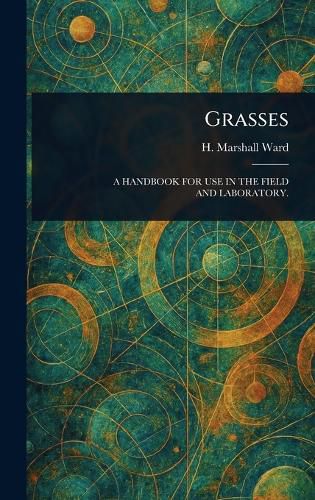Readings Newsletter
Become a Readings Member to make your shopping experience even easier.
Sign in or sign up for free!
You’re not far away from qualifying for FREE standard shipping within Australia
You’ve qualified for FREE standard shipping within Australia
The cart is loading…






This title is printed to order. This book may have been self-published. If so, we cannot guarantee the quality of the content. In the main most books will have gone through the editing process however some may not. We therefore suggest that you be aware of this before ordering this book. If in doubt check either the author or publisher’s details as we are unable to accept any returns unless they are faulty. Please contact us if you have any questions.
"Grasses: A Handbook for use in the Field and Laboratory" by H. Marshall Ward remains a vital resource for anyone interested in the botany, agronomy, and identification of grasses. This meticulously prepared print edition offers a comprehensive guide to these essential plants, valuable for both field study and laboratory work.
A classic in agricultural science, this handbook provides a detailed look at various grass species. Whether you are a student of botany, a professional in agronomy, or simply have an interest in plant life, this book offers a wealth of information. It serves as an invaluable tool for plant identification and understanding the characteristics of grasses. Explore the timeless knowledge contained within this essential handbook, presented in a format accessible to all.
This work has been selected by scholars as being culturally important, and is part of the knowledge base of civilization as we know it.
This work is in the public domain in the United States of America, and possibly other nations. Within the United States, you may freely copy and distribute this work, as no entity (individual or corporate) has a copyright on the body of the work.
Scholars believe, and we concur, that this work is important enough to be preserved, reproduced, and made generally available to the public. We appreciate your support of the preservation process, and thank you for being an important part of keeping this knowledge alive and relevant.
$9.00 standard shipping within Australia
FREE standard shipping within Australia for orders over $100.00
Express & International shipping calculated at checkout
Stock availability can be subject to change without notice. We recommend calling the shop or contacting our online team to check availability of low stock items. Please see our Shopping Online page for more details.
This title is printed to order. This book may have been self-published. If so, we cannot guarantee the quality of the content. In the main most books will have gone through the editing process however some may not. We therefore suggest that you be aware of this before ordering this book. If in doubt check either the author or publisher’s details as we are unable to accept any returns unless they are faulty. Please contact us if you have any questions.
"Grasses: A Handbook for use in the Field and Laboratory" by H. Marshall Ward remains a vital resource for anyone interested in the botany, agronomy, and identification of grasses. This meticulously prepared print edition offers a comprehensive guide to these essential plants, valuable for both field study and laboratory work.
A classic in agricultural science, this handbook provides a detailed look at various grass species. Whether you are a student of botany, a professional in agronomy, or simply have an interest in plant life, this book offers a wealth of information. It serves as an invaluable tool for plant identification and understanding the characteristics of grasses. Explore the timeless knowledge contained within this essential handbook, presented in a format accessible to all.
This work has been selected by scholars as being culturally important, and is part of the knowledge base of civilization as we know it.
This work is in the public domain in the United States of America, and possibly other nations. Within the United States, you may freely copy and distribute this work, as no entity (individual or corporate) has a copyright on the body of the work.
Scholars believe, and we concur, that this work is important enough to be preserved, reproduced, and made generally available to the public. We appreciate your support of the preservation process, and thank you for being an important part of keeping this knowledge alive and relevant.